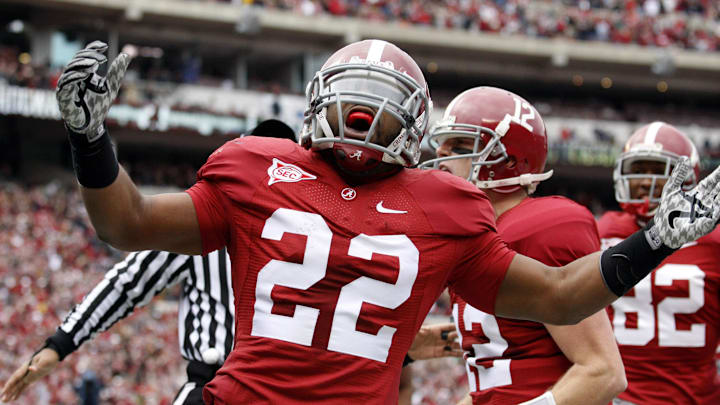It's hard to even remember now, but 15 years ago in the midst of Alabama's first national championship season under Nick Saban, the Crimson Tide had never produced a Heisman Trophy winner.
The old saying was that Alabama didn't care about Heisman's; they cared about national championships. But deep down, it burned all of us up that the most prestigious individual award in the sport was conspiciously missing from the trophy case at the Bryant Museum.
When a four-star RB from Flint, Michigan committed to Saban's first recruiting class in 2008, I doubt anyone expected him to break the drought.
Ingram had a productive freshman season backing up Glenn Coffee, rushing for over 700 yards and a dozen touchdowns. He was the featured back heading into 2009, with another freshman named Trent Richardson poised to join Ingram to form the most devastating backfield duo in college football.
Ingram had only a single 100+ yard game in the first month, a 150-yard performance in a season opening win over Virginia Tech. Through September, Ingram was on nobody's Heisman radar.
He picked up the pace in October, opening the month with two 140+ yard rushing afternoons in wins over Kentucky and Ole Miss to help the Crimson Tide to two road wins.
But it was the October 17th home date against South Carolina that changed it all from Ingram, elevating him toward the top of the Heisman race.
On a night where Greg McElroy struggled, throwing for just 92 yards on 20 attempts and a couple of interceptions, Ingram had to put the team on his back.
Mark Barron opened the game with a pick-six of Stephen Garcia, but that was the lone touchdown of the night as the game flipped to the fourth quarter with Alabama clinging to a 13-6 advantage.
With just under eight minutes left to play, Saban and offensive coordinator Jim McElwain took the game out of McElroy's hands and placed it squarely on Ingram's shoulders. Ingram lined up as the wildcat QB, often with Julio Jones motioning over in a jet sweep fake, and took the snap and barreled toward the South Carolina defense.
The Gamecocks knew exactly what Alabama was going to do, and it never mattered. He broke a 24-yard run on the first play of the drive, then ran for four yards, then five, then nine, before busting another 22-yard run down to the South Carolina four-yard line. On 1st and goal, McElroy lined back up at QB, but promptly pitched it to Ingram who scampered in for a four yard touchdown to put the game away.
All told, it was a six-play, 68-yard drive, all Ingram runs. For the game, Ingram carried the ball 24 times for 246 yards and a touchdown. He was also the team's leading receiver, catching two passes for 23 yards.
It remains, to this day, the single most prolific rushing performace in Bryant-Denny Stadium history. It's the fourth most rushing yards in a game by an Alabama player, but all three above him happened in road games; Shaun Alexander's 291 at LSU in 1996, Bobby Humphrey's 284 at Mississippi State in 1986, and Derrick Henry's 271 at Auburn in 2015.
Ingram finished the season just shy of 2000 total yards from scrimmage and scored 20 touchdowns. He solidified the program's first Heisman Trophy with 189 yards from scrimmage and three touchdowns in the Tide's SEC Championship win over Florida, the game that officially passed the torch from Florida to Alabama, beginning the Crimson Tide's run of dominance in the SEC and college football as a whole.
Ingram's Heisman win was the first of four for Alabama. He was later joined by Derrick Henry in 2015, DeVonta Smith in 2020, and Bryce Young in 2021.
Before he was a boisterous analyst on Fox Sports, before he was an 11-year NFL pro, Ingram was the first Heisman winner in Alabama history, and he delivered a speech that is still, to me, one of the best acceptance speeches in the history of the award.
